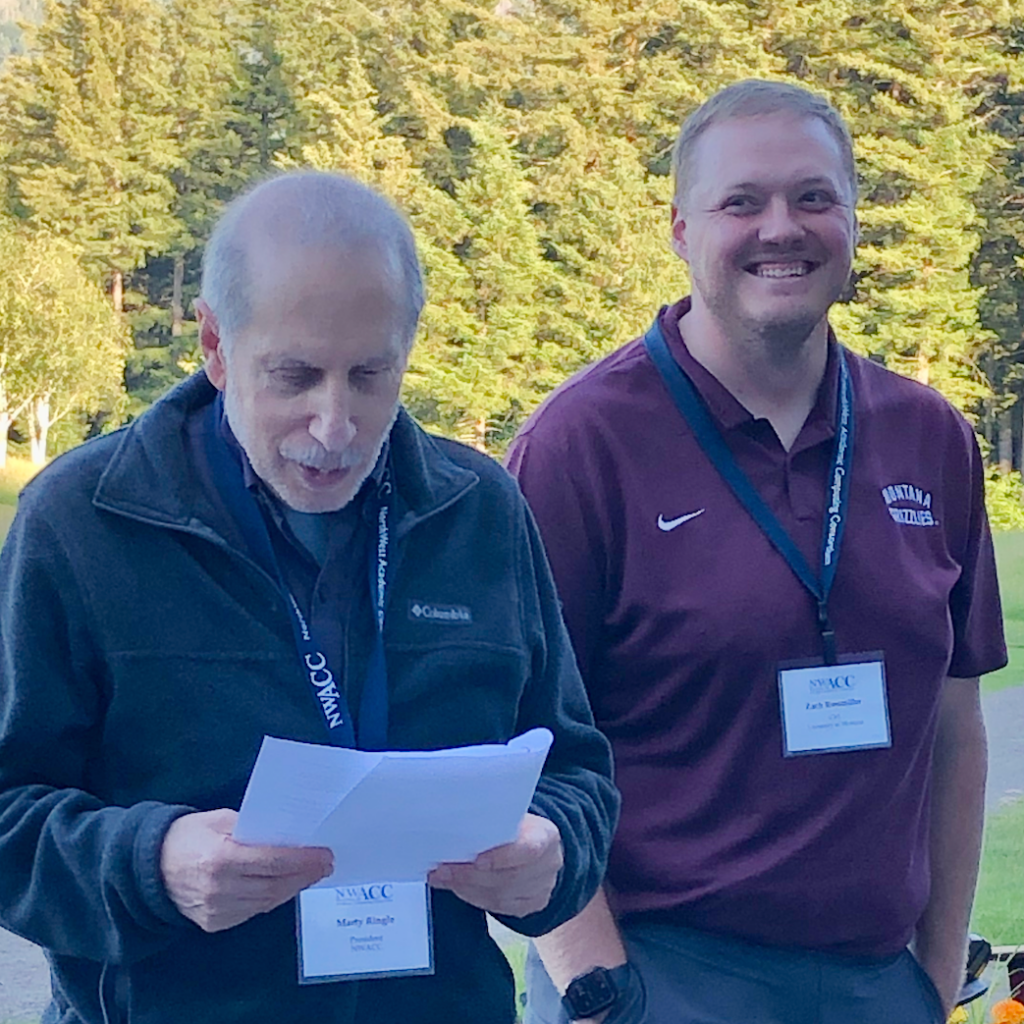
University of Montana Information Services for the development of the Career Advancement and Mentorship Program (CAMP)
Participants
University of Montana Information Technology (UM IT): Zach Rossmiller, CIO; Jared Sheffield, Director of Internal Operations; Antony Jo, Senior CI Engineer/Mentorship Leader; John Greer, Director of Academic IT Support; Joshua Tucker, Client Experience Manager/Training Manager; Robert Giblin, IT Finance and Business Manager; the UM IT workforce
The Challenge
The growing dependence on technology across higher education, spanning teaching, learning, research, and administrative functions, places a great deal of strain on IT operations. The University of Montana (UM) recognizes that the foundation of successful IT operations rests on the strength of its workforce. Without proficient and engaged employees, sustaining university excellence and competitiveness is severely hindered. Regrettably, both external and internal factors pose challenges to cultivating a thriving workforce. Challenges in the form of budgetary constraints, shrinking applicant pools, and failed searches reflect the difficulty UM and other universities face in recruiting and retaining IT talent. Unclear job expectations, workload balance problems, and a perceived lack of career growth opportunities for IT employees create serious challenges for IT staff recruitment and retention.
The Project/Solution
The CIO assembled a team tasked with investigating recruitment and retention issues within the IT organization and devising a comprehensive and sustainable strategy to tackle these challenges. This effort resulted in the creation of the Career Advancement and Mentorship Program (CAMP), designed to address the core obstacles hindering the development of a robust IT workforce. While several of the initiatives within CAMP are not necessarily novel, integrating them into a holistic and sustainable approach that can be implemented within the IT organization marks a step forward. CAMP consists of four key components:
- Clarifying role descriptions – CAMP ensures accurate alignment between employee titles and roles, facilitating equitable performance evaluations, compensation structures, and alignment with IT goals.
- Improving the job search process – While HR retains overall responsibility for recruitment, CAMP assumes control and supervision of IT-related job searches and search committees. This provides increased opportunities to engage with candidates while maintaining a fair, inclusive recruitment process.
- Establishing an IT Professional Development Request Portal – Through this managed system, CAMP offers continuous learning opportunities, enabling IT employees to adapt and remain proficient amid rapidly evolving technological landscapes.
- Career Advancement Guidance – CAMP offers career pathways, mentorship, and guidance to empower employees to advance their careers, while simultaneously fostering organizational excellence within the IT department. These Pathways offer structured career trajectories for IT staff, aligning experiential learning and educational coursework with industry standards and competencies. Employees benefit from dedicated mentors and receive comprehensive job-related checklists with supervised tasks and training goals, ensuring a planned progression in their roles. Mentors, drawn from experienced staff, provide valuable guidance and supervision, fostering skill development and a sense of community within the IT organization.
This last component serves as an effective recruitment tool and contributes to the expansion of our candidate pool. CAMP collaborates with industry partners through the IT Vendor Involvement Program (IT-VIP), offering participants exposure to real-world practices, networking, and recruitment and placement opportunities. Through these concerted efforts, CAMP not only addresses immediate workforce challenges but also lays the groundwork for sustained growth and excellence within UM’s IT organization.
Outcomes
- Improved Collaborations: Closer working relationships between IT, HR, and campus units focused on staff development.
- Strengthened Vendor Partnerships: Fosters collaboration with industry partners for networking, recruitment, and placement.
- Clarity and Alignment: Role clarity and alignment for work life balance, accurate evaluations, and fair compensation.
- Improved Recruitment: Alignment with IT needs, improved recruitment processes, and timelines.
- Continuous Learning: Increased opportunities for ongoing learning for IT staff.
- Structured Career Paths: Clear career trajectories with guidance and mentorship.
- Retention Impact: Heightened staff engagement and satisfaction.
- Improved Strategic Planning: Initiatives help with succession planning and aligning IT objectives with UM goals.
- Leadership Development: CAMP cultivates leadership skills among staff.
Relevance for Other Institutions
CAMP is relevant for institutions beyond UM due to its holistic approach in addressing the challenges commonly faced in cultivating a thriving IT workforce. By prioritizing role clarity, inclusive recruitment, continuous learning, and structured career paths, CAMP lays a foundation for fostering talent, enhancing engagement, and aligning strategic objectives with organizational goals. In addition, its emphasis on collaboration with industry partners and leadership development ensures that staff are equipped with the skills and opportunities necessary for success in a rapidly evolving technological environment. As institutions grapple with similar workforce challenges, CAMP serves as a replicable model for building an adaptive, resilient, and engaged IT workforce.
